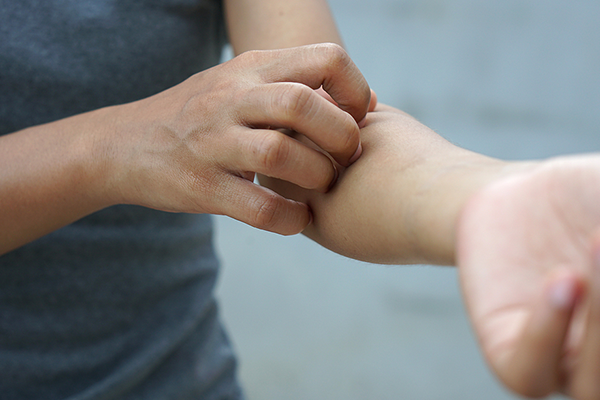February is Heart Month. Find out more on heart disease in women from an interview with Dr. Doug Miller.
Tell us a little about your role and what your goals are?
I’m the Vice Dean for Academic Affairs at Medical College of Georgia. My responsibility includes the MD Education program, the Residency programs and the continuing medical education programs of Medical College of Georgia.
What inspired you to become a cardiologist?
Cardiology is an interesting and rapidly evolving area of medicine and when I entered cardiology it was a time when many new drugs and therapies were being developed that we now use today. It was an era when people were beginning to put stents and balloons into coronary arteries and try new drugs to try to prevent the damage from heart attacks and blood clots and blood vessels. It’s an exciting time to be in cardiology.
The science of cardiology that I studied when I was working as a clinical cardiologist was also an exciting part of it to me. Running a laboratory and doing research was part of what I wanted to be doing in my career in cardiology. Combining the two was the best of both worlds, specifically with regard to women’s health and women’s heart disease.
Tell us a little bit about heart disease and what are some signs that women can look out for?
It became apparent to me, and to other investigators in the field of heart disease, in the 80s and 90s that women were susceptible to heart disease, but that it wasn’t being diagnosed as early or as accurately as it is in men. This led us to study the ways that heart disease presents itself in women. For instance, how they experience chest pains may be different than those in men. When they have heart attacks, their access to services like bypass surgery and things of that sort was also limited by virtue of the under diagnosis heart disease in women. It has taken about 20 to 25 years for us to fully understand that heart disease is just as serious a condition in women as it is in men. It is the leading cause of death in women and men and therefore we have to approach it with a seriousness and a higher level of suspicion than we would perhaps have done so in the past. Most of the medications, treatments, and therapies that work in men also work well in women. We achieved a gender equivalence and purposely in how we treat heart disease in women. Now, the real issue is how we modify women’s understanding themselves of heart disease. We, in the medical community understand it perhaps as well as we should, many women don’t feel they’re susceptible to the same types of heart disease that men get. They are often surprised to learn that they have three vessels that are blocked and that’s the cause of their shortness of breath. The public awareness campaign in the American Heart Association every heart month definitely makes the point that this is something that women need to be aware of and they need to be on the alert for. Mothers and daughters need to be sharing information within the family about heart disease risks.
What are some preventive measures woman can do to decrease their chances of heart disease?
Women are all susceptible to slightly different degrees than men to the modifiable risk factors for coronary heart disease. They should not smoke. They should treat blood pressure problems and diabetes. They should manage their weight and control their cholesterol intake.
A lot of the differences in women and men, and the later onset of heart disease in women than men, has to do with the protective effects of estrogen. Estrogen replacement therapy or hormone replacement therapy is something that all women should discuss the risks and benefits of with their doctors, because if it can be safely used, and women that are not at higher risk for cancers of the breasts or ovaries, then that is a worthwhile consideration. It can forestall or delay the onset of heart disease in women.
Is heart disease hereditary?
Heart disease is typically a complex genetic and environmental condition. There are certain genes that predispose heart disease risk. It’s a complicated multi-allelic pattern, not just a single gene, but many genes are involved. In families of women that I’ve treated where there’s been a concentration of familial hypercholesterolemia high cholesterol those women and their daughters are, if they inherit that gene, at significantly greater risk. This should be something that I look for and everybody looks for when there is a family history of heart disease, especially in women it’s certainly something to be concerned about.
What are some treatment options for women if they have been diagnosed with heart disease?
Women and men, but women certainly, should be encouraged to be physically active wherever they can be. Exercise and regular exercise are an important part of a heart-healthy regimen of activities. Obviously it’s good for men too, but women should know that it benefits them to be physically active and to manage their weight. In terms of other modifications, a patient told me yesterday that their family doctor said avoid eating anything that’s white: bread, potatoes, salt, and I thought that was good advice. If people can exercise regularly and avoid things that definitely can harm their metabolic health that would be a very good piece of advice for everybody to follow.
Is heart disease more prevalent in certain types of communities than others?
The basis for heart disease in women is environmental, not racially or culturally based. In any culture that eats healthy foods, the so-called Mediterranean diet, you’re less likely to have heart disease than you are in cultures that eat more of a heavy North American diet. In cultures that have different dietary practices and habits you can’t see clusters of higher incidence of heart disease. Hispanic women for example have been found to have higher incidences of heart disease, because the dietary practices in that community tend to be less Mediterranean, if you will, than they are in other communities. Diet is an important cultural understanding of the community as to what the healthy behaviors are in the community.





